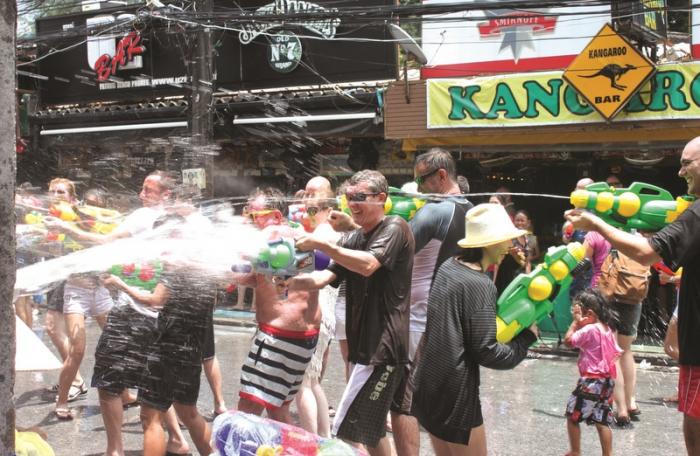Law, Life & Society: Have fun, but don’t break the law

PHUKET: Songkran was originally a Thai religious festival marking the beginning of the Buddhist New Year. Now it has morphed into a week-long holiday, water fights and parties. Large numbers of tourists come to Thailand to join in the festivities. It is a time where people let loose and civility is secondary. In response, Thai police are present in large numbers to ensure that there are no disturbances.
Excessive drinking contributes to the party atmosphere and the police will be looking for people who have lost control. Those found guilty can be arrested and fined.
Some examples of unacceptable behavior are defacing of private and public property; urinating, defecating or vomiting on other people’s property; fighting; or joining in a public brawl.
Do not consume illegal narcotics. The potential penalty for public intoxication or fighting does not compare to the seriousness of being arrested and charged with illegal narcotics. This opens people up for extortion and long sentences in Thailand’s overcrowded prisons.
It is best to cooperate with the Thai police. Normally, they just want to ask questions or observe the behavior of an individual. Under section 367 of the Thai Criminal Code, people are required to provide their name and address to a public officer if it is requested in the interest of legal enforcement. Failure to do so, or to give false information, makes you liable for a fine.
However, even if it is determined you have been given a reasonable request by a legitimate police officer, it is important to be wary. If the police would like to search your clothes or bags, ensure that it is done in public and in the presence of others. If they want to search your pockets, pull the items out by yourself to ensure that something sinister is not placed inside.
If the police determine that a law has been broken and that the individual needs to be taken into custody, they will arrest the suspect. They have a duty to immediately inform that person of the charge and and to take the suspect directly to the closest police station for processing. They are not allowed to take the person into another room or to a private house.
After the arrest, the suspect can contact a related person and an attorney. The police can only hold a person for 48 hours unless they bring the suspect in front of a judge to request an extension of the hold. After the arrest, the suspect may be eligible for bail. For small cases like public intoxication, the bail can be paid immediately.
A quirk in the law is that Thailand has a good Samaritan law. When you see anyone in danger, you are required to render assistance if it does not put the individual in danger. If the public officer requests assistance in the performance of a public duty, you are required to assist him or her. Failure to do so can lead to imprisonment and/or a fine.
Keep with you a copy of your ID, the phone number of a local friend and your contact at your local embassy, and the phone number of a local English speaking attorney.
Have fun in groups and be vigilant. Stay away from narcotics and people who may attempt to take advantage of you.
Yutthachai Sangsirisap is a licenced Thai Attorney practicing in Bangkok. Robert R Virasin is a licenced US Attorney and managing director of Virasin & Partners. They can be reached at info@virasin.com or at www.virasin.com.
— Robert R Virasin
Latest Thailand News
Follow The Thaiger on Google News:


























